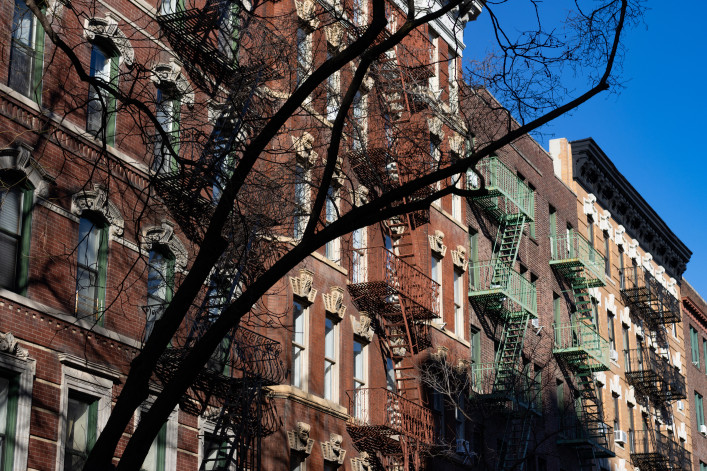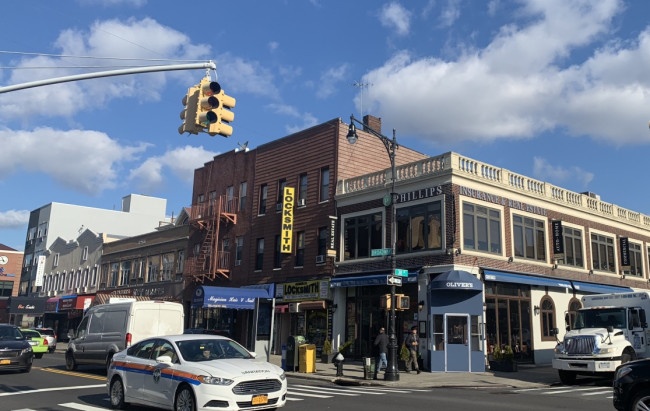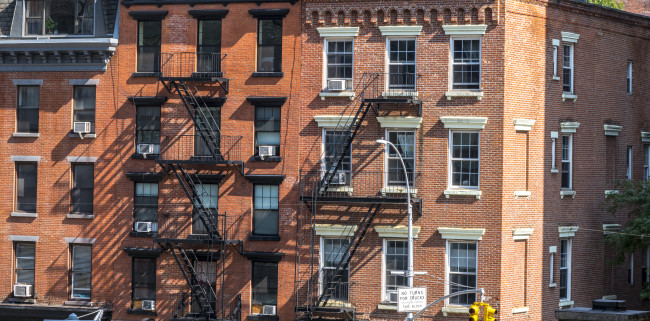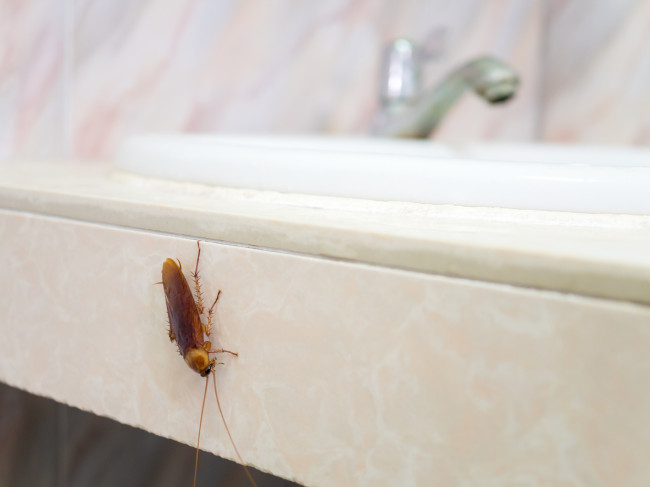Does my landlord have to disclose bedbug infestations in a building’s common areas?
- Building owners don’t have to reveal bedbug infestations in public areas in their annual bedbug reports
- Residents can report bedbug sightings to their landlord and the HPD, which will send out an inspector

The HPD can send out an inspector to check your apartment for bedbugs—including a special bedbug sniffing dog.
iStock
Do buildings have to disclose when there are bedbugs in public spaces in their annual bedbug report?
Unfortunately not, according to our experts.
Every December, property owners have to file an annual bedbug report that discloses infestations within their building’s apartments in the past year, according to the the Housing Preservation and Development Department. But that report doesn’t require an owner to reveal when there are bedbugs in public spaces, such as hallways, an HPD spokesperson says.
HPD can issue a violation if an inspector finds bedbugs in units or common spaces, according to the spokesperson. If your landlord refuses to address an infestation, contact 311 right away to file a complaint.
“Every person deserves a safe and comfortable place to call home,” says Natasha Kersey, deputy press secretary for the HPD. “We urge all New Yorkers with pest issues to immediately contact your landlord, then call 311 to file a complaint if conditions are not urgently addressed.”
Annual reporting requirements
Local Law 69 requires owners to “attempt” to get the bedbug infestation history of each apartment from the tenant or owner for the prior year. Owners also have to report whether eradication measures—such as fumigation—were used to eliminate a bedbug outbreak in the previous year.
As the law is written, it only specifies that owners disclose the number of units that had a bedbug infestation, underwent eradication, or were infected after an attempted eradication. It does not cover common spaces, according to Local Law 69’s text.
You can find your building’s bedbug report through HPD’s building information website, HPD Online.
How to report a bedbug infestation
If you catch sight of these creepy crawlies, tell your landlord immediately. Owners are required to address bedbug infestations promptly by inspecting the infected units, sealing up holes or cracks the bugs could travel through, and by using pesticides when necessary under the Housing Maintenance Code.
But if your landlord doesn’t address the issue, call 311 or file a complaint online. The HPD can send out inspectors to check your apartment—including a special bedbug sniffing dog. (Though the department notes that canine inspectors don’t go out on every mission, particularly if the tenant has their own pets, or has used insecticide in the past month).
An HPD inspector will put a notice of violation on the property if they find bedbugs. The owner will also receive a notice from the NYC Department of Health and Mental Hygiene that instructs them to inspect the unit for bedbugs, and to hire a pest management professional to get rid of the critters.
How to keep bedbugs out
Bedbugs can get into your apartment through your clothing or visitors, or migrate from nearby units, says Gil Bloom, the president of Standard Pest Management (and an entomologist to boot).
The best way to keep bugs out is to seal up your apartment, Bloom says.
“You can build your defenses by becoming a unit unto itself,” Bloom says. “This can be accomplished by using a sealant along cracks, gaps, and around any service lines, heat, cable, electric, or phone lines, even if the lines are not in use. This would be especially important in rooms that adjoin or are in line with bedrooms and possibly living rooms.”
You can also place bedbug sticky traps or monitors throughout your apartment and check them on a weekly basis, Bloom says. Just make sure to hold on to the bugs you catch so you can properly identify them later.
Trouble at home? Get your NYC apartment-dweller questions answered by an expert. Send your questions to [email protected].



























